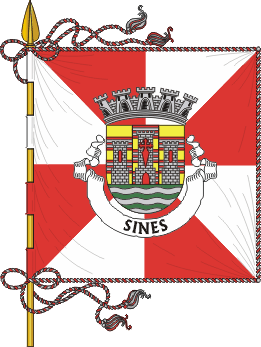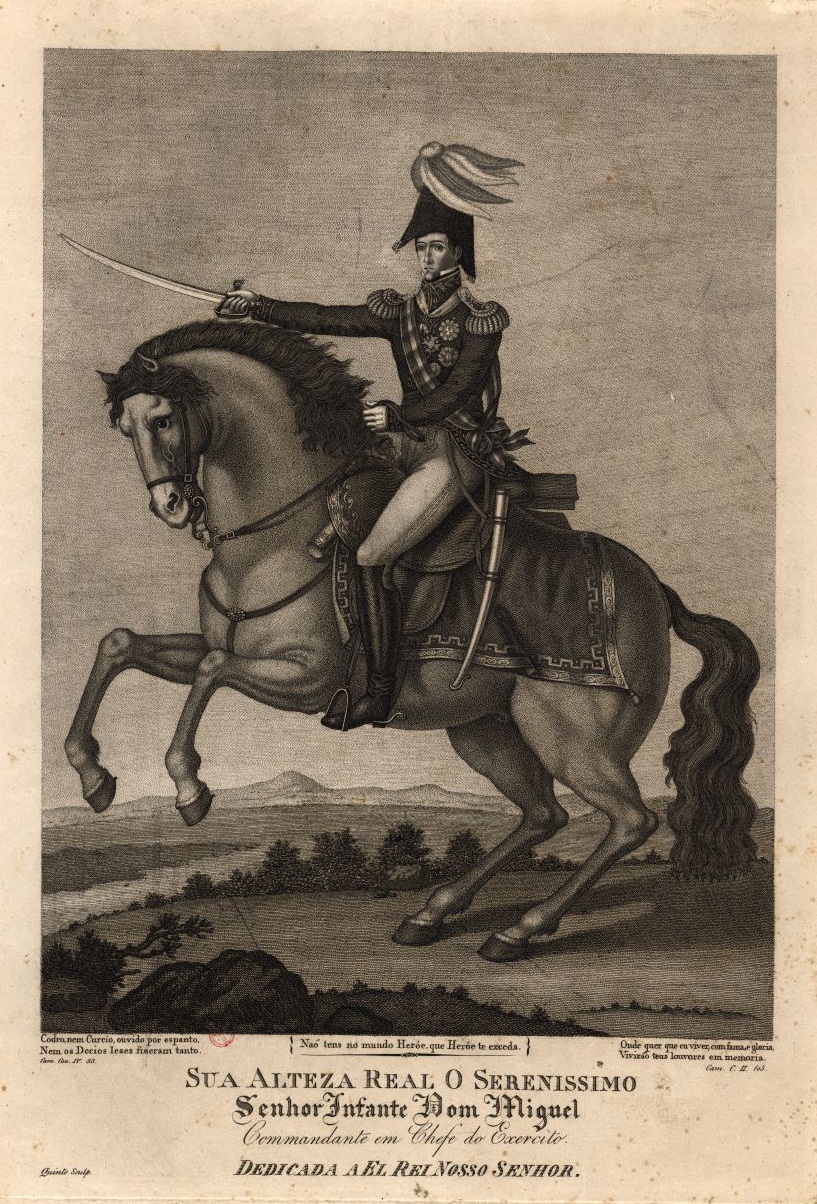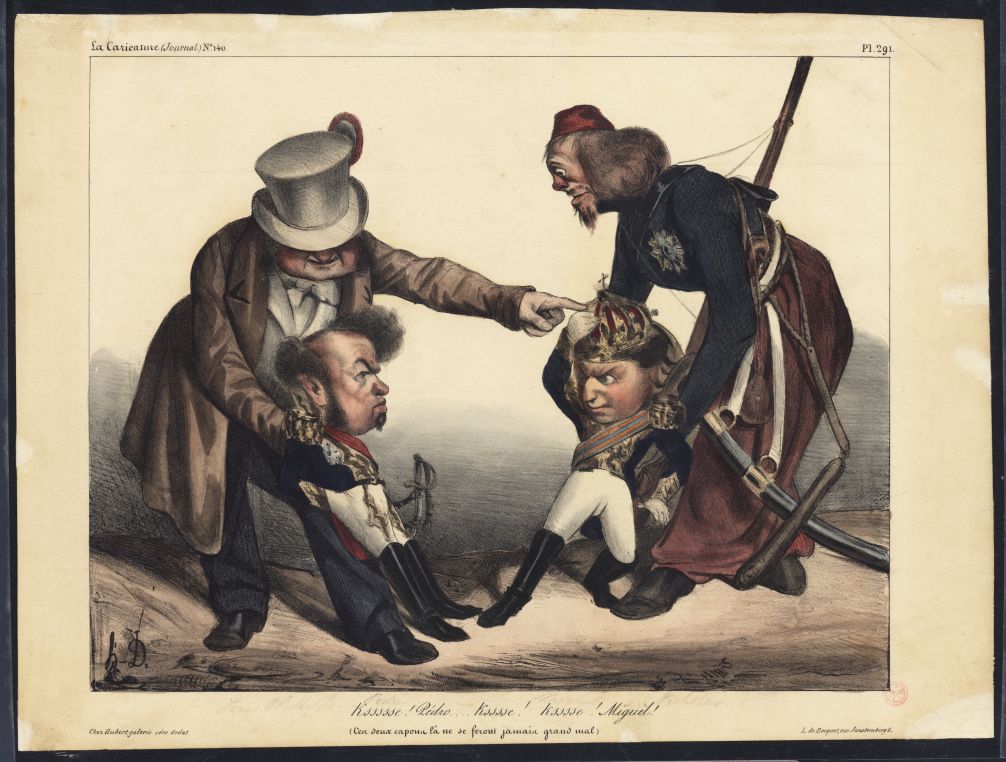|
Alvalade (Santiago Do Cacém)
Alvalade, from the Arabical-balat is a parish in the municipality of Santiago do Cacém in the Setúbal District of Portugal. It also forms part of Alentejo Litoral. In the 2021 census it had 1803 inhabitants. History In 1801, Alvalade had 1,321 inhabitants. Until 1834, it was a county seat consisting of the parishes of Alvalade and Nossa Senhora do Roxo. It belonged, between 1834 and 1855, to the municipality of Messejana and, between 1855 and 1871, to the municipality of Aljustrel. In 1755 the town, in common with much of southern Portugal, suffered badly from the Lisbon Earthquake. In 1234 Alvalade can be considered to have definitively become Portuguese land after the invading Moors were defeated. In 1273 Alvalade was donated to the Military Order of Saint James of the Sword by Afonso III of Portugal. On 20 September 1510 King Manuel I granted a foral (town charter) to Alvalade. Following the Liberal Wars (1828-1834) in Portugal, with the Liberal faction loyal to Dom Pedro ... [...More Info...] [...Related Items...] OR: [Wikipedia] [Google] [Baidu] |
Alentejo
Alentejo ( , , ) is a geographical, historical, and cultural region of south–central and southern Portugal. In Portuguese, its name means "beyond the Tagus" (). Alentejo includes the regions of Alto Alentejo Province, Alto Alentejo and Baixo Alentejo Province, Baixo Alentejo. It corresponds to the districts of District of Beja, Beja, District of Évora, Évora, District of Portalegre, Portalegre, and Alentejo Litoral. Its main cities are Évora, Beja, Portugal, Beja, Sines, Serpa, Estremoz, Elvas, and Portalegre, Portugal, Portalegre. It has borders with Beira Baixa Province, Beira Baixa in the north, with Spain (Andalucia and Extremadura) in the east, Algarve in the south, and the Atlantic Ocean, Ribatejo, and Estremadura Province (historical), Estremadura in the west. Alentejo is a region known for its traditional polyphonic singing groups, similar to those found in Tuscany, Corsica, and elsewhere. History In the 19th century, the comarca of the Alentejo became the Al ... [...More Info...] [...Related Items...] OR: [Wikipedia] [Google] [Baidu] |
Pedro I Of Brazil
''Don (honorific), Dom'' Pedro I (12 October 1798 – 24 September 1834), known in Brazil and in Portugal as "the Liberator" () or "the Soldier King" () in Portugal, was the founder and List of monarchs of Brazil, first ruler of the Empire of Brazil from 1822 to 1831 (under the name of Pedro I) and List of Portuguese monarchs#House of Braganza (1640–1910), King of Portugal in 1826 (under the name of Pedro IV). Born in Lisbon, Pedro was the fourth child of King Dom John VI of Portugal and Queen Carlota Joaquina, and thus a member of the House of Braganza. When the country was Invasion of Portugal (1807), invaded by French troops in 1807, he and his family fled to Portugal's largest and wealthiest colony, Brazil. The outbreak of the Liberal Revolution of 1820 in Lisbon compelled Pedro I's father to return to Portugal in April 1821, leaving him to rule Brazil as regent. He had to deal with challenges from revolutionaries and insubordination by Portuguese troops, all of whi ... [...More Info...] [...Related Items...] OR: [Wikipedia] [Google] [Baidu] |
Aurea (singer)
Áurea Isabel Ramos de Sousa (born 7 September 1987), known professionally as Aurea (), is a Portuguese soul singer originally from Santiago do Cacém, Alentejo, who grew up in Silves, Algarve. She debuted in 2008 with her single " Okay Alright", which was included on the soundtrack of the Portuguese television series '' Morangos com Açúcar''. At the end of 2008, she performed the song live at the Morangos Live Festival, along with two other cover duets. This concert was released on DVD in 2009. Aurea released her debut album, ''Aurea'', in September 2010. The album entered at number 21 at the Portuguese Albums Chart, but quickly reached number 1. It features the number " Busy for Me", which was released as the album's lead single. In December 2010, Aurea made a special live TV broadcast to promote some of her songs. It was transmitted by RTP2 and SIC Notícias. Her single "Busy for Me", released in August 2010, became her first number one single; it topped the Portuguese iT ... [...More Info...] [...Related Items...] OR: [Wikipedia] [Google] [Baidu] |
Medieval Bridge Of Alvalade
The Medieval Bridge of Alvalade or, more properly, the Bridge over the Campilhas River (Portuguese: ''Ponte sobre a Ribeira de Campilhas''), is in the parish of Alvalade in the Santiago do Cacém municipality in the Setúbal District of Portugal. Its origins are believed to be Roman, although this has been disputed. History The bridge is believed to have been part of a road system that, since the Roman occupation of Portugal, connected the city of Miróbriga, close to modern-day Santiago do Cacém, and Pax Julia in the modern-day municipality of Beja, passing through Metallum Vispascense, the present-day Aljustrel. It is no longer used to cross the river. The bridge has always been known as the "Roman bridge" but different opinions have emerged in the last two decades regarding its origins. While some believe that it is a Roman bridge that underwent major works in the 16th century, others believe that it only goes back to the 17th century. The bridge was restored in 2001. This ... [...More Info...] [...Related Items...] OR: [Wikipedia] [Google] [Baidu] |
Instituto Português Do Mar E Da Atmosfera
The Instituto Português do Mar e da Atmosfera (; abbreviated as IPMA) is the national meteorological, seismic, sea and atmospheric organization of Portugal. It also provides the weather for RTP's channels. History What is now IPMA was originally created in 1946 as the National Meteorological Service (''Serviço Metereológico Nacional'', SMN), which centralized the functions of the previous existing meteorological sectorial services (Civil Aviation, Army, Military Aeronautics, Navy and Agriculture) as well as the Azores regional meteorological service and part of the university meteorological institutes. In 1976, the SMN was renamed National Institute of Meteorology and Geophysics (''Instituto Nacional de Meteorologia e Geofísica'', INMG) and then renamed Institute of Meteorology (''Instituto de Meteorologia'', IM) in 1993. It was renamed in 2012, when the agency assumed responsibility for the fisheries Fishery can mean either the enterprise of raising or harvesting fish ... [...More Info...] [...Related Items...] OR: [Wikipedia] [Google] [Baidu] |
Mediterranean Climate
A Mediterranean climate ( ), also called a dry summer climate, described by Köppen and Trewartha as ''Cs'', is a temperate climate type that occurs in the lower mid-latitudes (normally 30 to 44 north and south latitude). Such climates typically have dry summers and wet winters, with summer conditions being hot and winter conditions typically being mild. These weather conditions are typically experienced in the majority of Mediterranean-climate regions and countries, but remain highly dependent on proximity to the ocean, altitude and geographical location. The dry summer climate is found throughout the warmer middle latitudes, affecting almost exclusively the western portions of continents in relative proximity to the coast. The climate type's name is in reference to the coastal regions of the Mediterranean Sea, which mostly share this type of climate, but it can also be found in the Atlantic portions of Iberia and Northwest Africa, the Pacific portions of the United States ... [...More Info...] [...Related Items...] OR: [Wikipedia] [Google] [Baidu] |
Vila Nova De Milfontes
Vila Nova de Milfontes is a town and civil parish (''freguesia'') in the municipality (''concelho'') of Odemira, in the Alentejo region in Portugal. The population in 2021 was 5,653, in an area of 76.48 km2. History One of the older parishes in the municipality, it was founded in 1485 by King John II. The area was constituted to serve an economic and defensive role in the Alentejo, at the confluence of the Mira River, and benefited from its strategic importance as a safe harbor. The first inhabitants were prisoners sentenced by minor crimes; 50 years later the population of the parish was little more than ten families. The village was frequently attacked by pirates and was destroyed completely in 1590. In response, Fort São Clemente was constructed between 1599 and 1602 under the reign of King PhilipII during the personal union of Spain and Portugal. During the 19th century, the parish was integrated into the municipality of Odemira, during the administrative reform ... [...More Info...] [...Related Items...] OR: [Wikipedia] [Google] [Baidu] |
Atlantic Ocean
The Atlantic Ocean is the second largest of the world's five borders of the oceans, oceanic divisions, with an area of about . It covers approximately 17% of Earth#Surface, Earth's surface and about 24% of its water surface area. During the Age of Discovery, it was known for separating the New World of the Americas (North America and South America) from the Old World of Afro-Eurasia (Africa, Asia, and Europe). Through its separation of Afro-Eurasia from the Americas, the Atlantic Ocean has played a central role in the development of human society, globalization, and the histories of many nations. While the Norse colonization of North America, Norse were the first known humans to cross the Atlantic, it was the expedition of Christopher Columbus in 1492 that proved to be the most consequential. Columbus's expedition ushered in an Age of Discovery, age of exploration and colonization of the Americas by European powers, most notably Portuguese Empire, Portugal, Spanish Empire, Sp ... [...More Info...] [...Related Items...] OR: [Wikipedia] [Google] [Baidu] |
Algarve
The Algarve (, , ) is the southernmost NUTS statistical regions of Portugal, NUTS II region of continental Portugal. It has an area of with 467,495 permanent inhabitants and incorporates 16 municipalities (concelho, ''concelhos'' or ''municípios'' in Portuguese). The region has its administrative centre in the city of Faro, Portugal, Faro, where both the region's Gago Coutinho Airport, international airport and public university, the University of Algarve, are located. The region is the same as the area included in the Faro District and is subdivided into two zones, one to the West (Barlavento Algarvio, Barlavento) and another to the East (Sotavento Algarvio, Sotavento). Tourism and related activities are extensive and make up the bulk of the Algarve's summer economy. Production of food which includes fish and other seafood, as well as different types of fruit and vegetables such as Orange (fruit), oranges, Common fig, figs, plums, carob pods, almonds, avocados, tomatoes, caulif ... [...More Info...] [...Related Items...] OR: [Wikipedia] [Google] [Baidu] |
Sines
Sines () is a town and a municipality in Portugal. The municipality, divided into two parishes, has around 14,214 inhabitants (2021) in an area of . Sines holds an important oil refinery and several petrochemical industries. It is also a popular beach spot and the main fishing harbour of Alentejo region. The municipality is bordered to the north and east by the municipality of Santiago do Cacém, south by Odemira and west by the Atlantic Ocean. The coastline of the city, south of São Torpes, is part of the Southwest Alentejo and Vicentine Coast Natural Park. History Vestiges of a few settlements have today been discovered in archaeological sites, such as Palmeirinha and Quitéria, that attest to the age of human settlements in Sines. Arnaldo Soledade (1981) noted that these Visigoths, identified as ''Cinetos'', may have been the original civilization that gave rise to the community, suggesting the local toponymy may have derived from this; ''Cinetos'', to Cines and, fina ... [...More Info...] [...Related Items...] OR: [Wikipedia] [Google] [Baidu] |
Miguel I Of Portugal
'' Dom'' Miguel I (26 October 1802 – 14 November 1866), known by several nicknames, was the King of Portugal between 1828 and 1834. He was son of King John VI and Queen Carlota Joaquina. Following his exile as a result of his actions in support of absolutism in the April Revolt (Abrilada) of 1824, Miguel returned to Portugal in 1828 as regent and fiancé of his niece Queen Maria II. As regent, he claimed the Portuguese throne in his own right, since according to the so-called Fundamental Laws of the Kingdom his older brother Pedro IV and therefore the latter's daughter had lost their rights from the moment that Pedro had made war on Portugal and become the sovereign of a foreign state (Brazilian Empire). This led to a difficult political situation, during which many people were killed, imprisoned, persecuted or sent into exile, and which culminated in the Portuguese Liberal Wars between authoritarian absolutists and progressive constitutionalists. In the end Miguel ... [...More Info...] [...Related Items...] OR: [Wikipedia] [Google] [Baidu] |
Liberal Wars
The Liberal Wars (), also known as the Portuguese Civil War () and the War of the Two Brothers () was a civil war in Portugal that lasted from May 1828 to May 1834, fought between liberal progressive constitutionalists (led by former King Pedro IV) and conservative traditionalists (led by King Miguel I) over the country's system of government and royal succession. Embroiled parties included the Kingdom of Portugal, Portuguese rebels, the United Kingdom, France, the Catholic Church, Spain and Russia. Roots of the conflict The death of King John VI in 1826 created a dispute over royal succession. While Dom Pedro, the Emperor of Brazil, was the king's oldest son, his younger brother Miguel contended that Pedro had forfeited his claim to the throne by declaring Brazilian independence and by declaring war on the Kingdom of Portugal, therefore violating the succession rules mentioned in the Fundamental Laws of the Kingdom. Pedro briefly entitled himself King Pedro IV of P ... [...More Info...] [...Related Items...] OR: [Wikipedia] [Google] [Baidu] |







